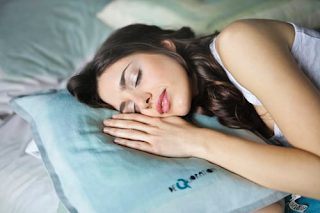https://images.unsplash.com/photo-1520206183501-b80df61043c2?ixlib
Have you ever felt so tired on your feet that you want to drop and sleep, but sleep escapes you? Yours is not a unique case. For many people, getting the quantity and quality of sleep is not a common feature in their life. Sleeping disorders and insomnia make it hard for many to fall asleep when they wish to do so. Sleep therapists often recommend a sleep pattern of around seven to nine hours. How then can you improve your night routines to help you sleep better? Below are the top tips that will help you sleep better.
Bedtime Schedule
Having a night routine or schedule can sound a bit too stiff or go against your grain. However, having a bedtime plan is very helpful if you want to improve your sleep quality and quantity. How do you go about setting a bedtime plan? Set your bedtime schedule (the time you want to go to bed) and work backward. Arrange all other things you have to do before bedtime. These include having your dinner, washing the kids, helping kids with their homework, housework, and other activities. Do not forget to set half an hour or more to wind down and relax before going to bed. Stick to your bedtime schedule, going to sleep at a set time and waking up the next day at a set time.
Exercise, Exercise
Taking part in physical exercises can help you gain better sleep. Some researchers say that exercise helps to decrease insomnia and improves the quantity and quality of sleep. When you exercise, your body temperature rises, cools down when you complete your exercise. The cooling down of your body is like your body relaxing when you slow down to sleep. Thus, after a physical workout, you will fall asleep faster when you go to bed. A point to note, avoid engaging in physical exercises at least three hours before going to sleep. This non-activity time will allow your body temperature to cool down and relax your body for rest.
Avoid Caffeinated Beverages
You may enjoy having a late-night cup of tea, coffee, wine, or other caffeinated drinks. Caffeine can shorten the total time you spend sleeping. Caffeine also delays the time you take to fall asleep. Studies state that it is better to avoid caffeinated drinks and alcohol at least four to six hours before bedtime. This period allows your body to digest and ward off the effect of caffeinated beverages.
Turn Your Bedroom into a Relaxing Sanctuary
Sometimes we bring other activities, such as completing office work, watching TV, and chatting on social media with friends into our bedroom. In effect, all these activities make sure that our brains do not relax and adversely affect our sleep quality. Thus, the recommendation is to move the TV somewhere else in the house to avoid watching TV in bed. Silence your digital gadgets or remove them from the bedroom altogether to avoid distraction once you fall asleep. On the other hand, having blackout curtains that darken your room, decrease noise, and keep your bedroom temperature warm can induce you to sleep. Many people find that searching for a mattress that contours to their bodies or releases pressure helps them fall asleep faster and stay asleep longer.
Conclusion
https://cdn.pixabay.com/photo/2016/10/12/02/56/girl-1733352__340.jpg
With getting advice on how to improve your sleep, many studies have a variety of suggestions. Each individual reacts differently to different sleep improvement suggestions. Therefore, try out the tips offered above and watch for signs of sleep improvement within the coming weeks. The key is getting your body and mind to relax so that you fall asleep faster and avoid disruptive sleep patterns.



Comments
Post a Comment
All comments are moderated before being published. Any inappropriate comments are forwarded to your mail server so that they may take proper action.